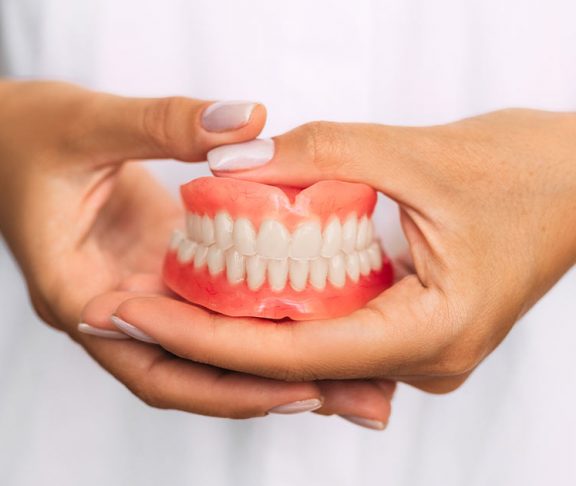Denturists are dental professionals who specialize in the fit, design, construction and repair of dentures. If you’ve never heard of a denturist, it may be because of where you live. Denturists aren’t common in the United States. Only a handful of states recognize the profession of denturism and many require the supervision of a dentist in order to practice. In fact, the practice of denturism is of great debate among dental professionals throughout the U.S.What to Expect From a Denturist?
Denturists practice denturism, the practice of making, altering, repairing and relining removable dentures directly to dental patients. Denturists are involved in the denture process from start to finish — from performing an initial exam of your mouth to completing the final product.
Full dentures are a process that requires several appointments. Typically, a denturist will use the following techniques to construct dentures:
- During the first appointment, the denturist performs an examination and obtains a medical and dental history of the patient. A set of impressions is taken to start the design process.
- The second visit consists of a “measuring appointment.” Wax denture bases are used to find a relationship between the gums and determine the correct bite.
- During the “try-in appointment,” the teeth are arranged until the desired look is achieved. Once the denturist and patient agree on the look, the teeth are set and finished in acrylic.
- At the final appointment, the denturist inserts the dentures and makes any necessary adjustments.
Products and Limitations
Denturists’ training is geared towards treating edentulous patients, but their work is not limited to traditional full and partial dentures. A denturist may also work with other types of removable prosthesis’, including implant-supported dentures, overdentures and immediate dentures. Many denturists also provide ongoing denture care through denture relining, or rebasing, a process used to refit dentures to restore retention (suction) diminished by bone loss and changes in the gums. Depending on the amount of damage, denturists may also be able to fix fractured or broken dentures.
Under state law, denturists can only work with removable dentures — they cannot make permanent restorations such as dental crowns, dental bridges or dental implants, nor can they perform any other dental services pertaining to the preparation of dentures. For instance, a denturist cannot insert dental implants or perform tooth extractions prior to placing your dentures.How is a Denturist Different from a Dental Lab Technician?
Many denturists are also lab technicians but have received direct training in their specialty. Denturists go to school for 2-3 years and must be licensed by their state to practice denturism. Unlike a DDS or DMD, who are trained in all aspects of general dentistry, denturists are limited to denture production and repair.
Many dental professionals debate whether denturism should be practiced at all. While legal in Canada, Australia and some European countries, denturism is only legal in a few states — according to DenturistInsight.com, denturists are currently allowed to practice only in Arizona, California, Florida, Idaho, Oregon, Maine, Michigan, Montana, Washington and Wyoming.
The debate, outlined by Raymond A. Flander’s “The Denturism Initiative,” questions the safety of dental treatments performed by non-dentists. But denturists feel that their training is adequate to produce a quality product. Some feel that the elimination of overhead from a dental office and off-site dental lab could save you money — which could be beneficial for patients on a fixed income. Regardless, the practice of denturism is not supported by the American Dental Association. The ADA’s Current Policies, updated in 2008, resolves that the ADA “vigorously opposes denturism” and notes that the use of the terms “denturist” and “denturism” in all ADA publications be accompanied by the following footnote:
“A ‘denturist’ is a person who is educationally unqualified to practice dentistry in any form on the public, and be it further resolved, that constituent and component societies act in concert with the American Dental Association.”
Whether you choose a dentist or denturist to make your dentures, make sure you do your research first. If denturism is legal in your state, get recommendations, read reviews and ask to see before and after pictures at your consultation. Understand that going to a denturist for dentures does not replace the need for a dentist. Only a dentist can offer a variety of tooth replacement options and help you decide which treatment is best for you. Dentists are also the only dental professionals who can check for signs of infection and oral diseases, including oral cancer — so everyone must visit a dentist at least twice a year.

